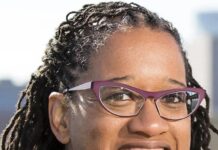 A recent study led by scholars at Rice University in Houston has found that African American STEM students who look more “stereotypically Black” are less likely to complete their degrees than their peers.
A recent study led by scholars at Rice University in Houston has found that African American STEM students who look more “stereotypically Black” are less likely to complete their degrees than their peers.
For their study, the research team analyzed a five-year history of a sample of Black, White, and Asian students who went to college for a STEM degree. They compared how long each students stayed in their STEM degree programs. The researchers coded photos of each student based on the extent to which students exhibited physical features the authors considered stereotypical for their races.
The results found that Asian students who looked more stereotypically Asian, were significantly more likely to finish their degree over the five-year period. However, the opposite was true for Black students. There was no significant difference among White students.
The research team conducted a second experiment to further examine this racial disparity. In this study, the researchers showed academic advisors from 50 top U.S. universities a set of photos of either Black, White, or Asian students. After viewing each photo, the participants were asked whether or not they would recommend that student for a STEM course.
This second study found similar results to the researcher’s first experiment. The participating advisors were much more likely to recommend stereotypically looking Asian men and women for STEM courses. Additionally, they were less likely to recommend stereotypically looking Black women. This bias did not extend to Black men.
After discovering this racial bias, the authors urge that the higher education community needs to conduct more research on understanding biases in the academic world.
“This study is important because it raises awareness about how decisions based on stereotypes can amount to very real negative outcomes for STEM students,” the authors wrote. “We hope that by bringing attention to this topic, it will create ripples of awareness and behaviors that lead to more authentic, meritocratically based outcomes.”











For some minorities and those who attended HBCU’s this information is not new.. Is more research really needed to study biases in the academic world? Having worked in many environments for over 40 years, it appears the same biases are present in many worlds…..academic, arts, politics, etc. People in decision making positions must be held accountable. If it is not on their radar to not stereotype and there are no consequences, what will additional research change? Will it address the impact the media has on forming sterotype?
Apparently I am one of the stereotypical black women who did not graduate with my PhD. Trust me I tried but my white male advisor wouldn’t see to it, he suggested stopping at my Master’s. In hindsite I wish I would have caused an uproar but then he died a tragic death the year after my graduation so somehow the world balanced things out on it’s own. I have run into the same type of thing in my career so just recently I decided to step away from science and fo us on obtaining new skills so that I can become my own boss one day soon.